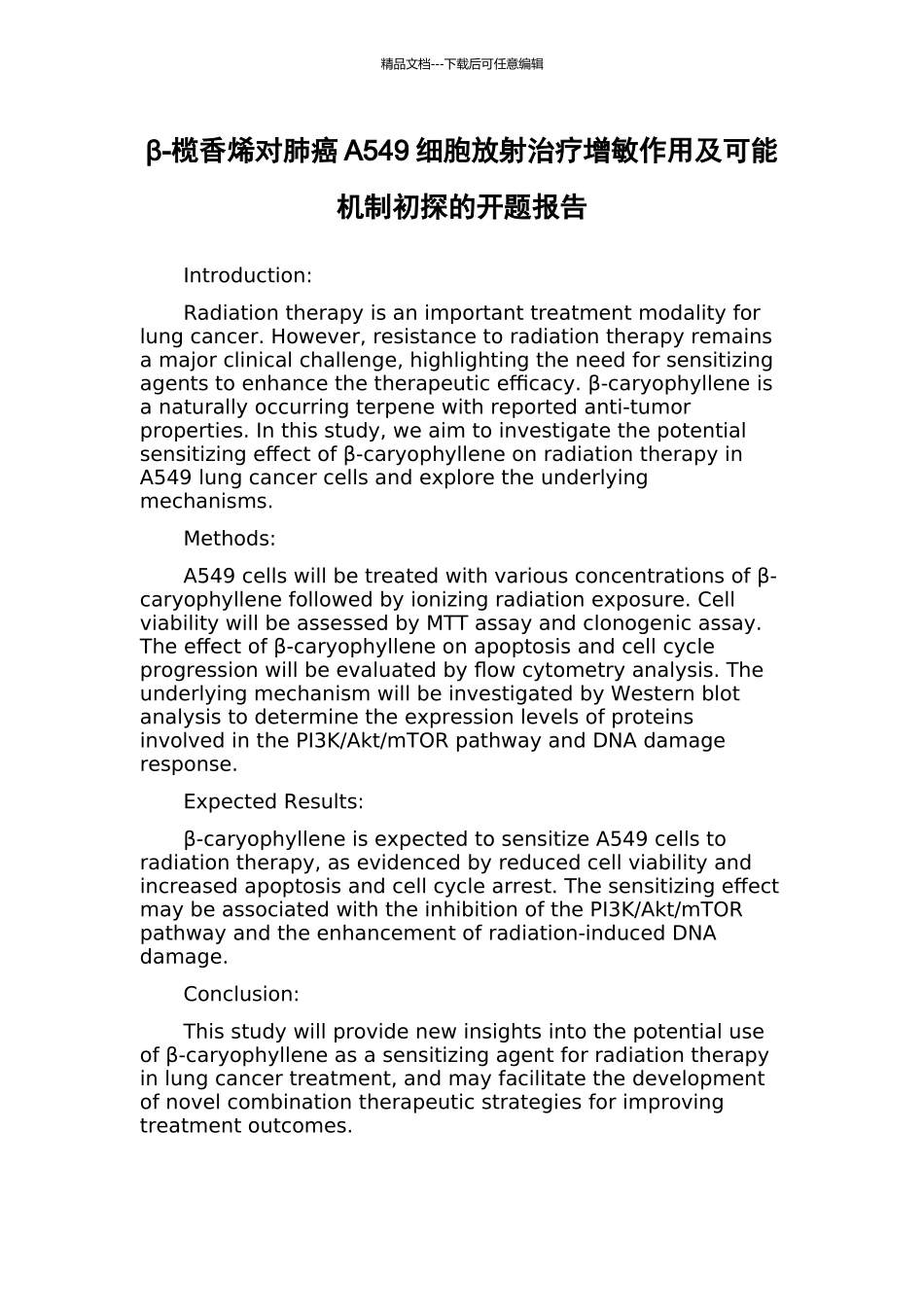精品文档---下载后可任意编辑β-榄香烯对肺癌 A549 细胞放射治疗增敏作用及可能机制初探的开题报告Introduction:Radiation therapy is an important treatment modality for lung cancer. However, resistance to radiation therapy remains a major clinical challenge, highlighting the need for sensitizing agents to enhance the therapeutic efficacy. β-caryophyllene is a naturally occurring terpene with reported anti-tumor properties. In this study, we aim to investigate the potential sensitizing effect of β-caryophyllene on radiation therapy in A549 lung cancer cells and explore the underlying mechanisms.Methods:A549 cells will be treated with various concentrations of β-caryophyllene followed by ionizing radiation exposure. Cell viability will be assessed by MTT assay and clonogenic assay. The effect of β-caryophyllene on apoptosis and cell cycle progression will be evaluated by flow cytometry analysis. The underlying mechanism will be investigated by Western blot analysis to determine the expression levels of proteins involved in the PI3K/Akt/mTOR pathway and DNA damage response.Expected Results:β-caryophyllene is expected to sensitize A549 cells to radiation therapy, as evidenced by reduced cell viability and increased apoptosis and cell cycle arrest. The sensitizing effect may be associated with the inhibition of the PI3K/Akt/mTOR pathway and the enhancement of radiation-induced DNA damage.Conclusion:This study will provide new insights into the potential use of β-caryophyllene as a sensitizing agent for radiation therapy in lung cancer treatment, and may facilitate the development of novel combination therapeutic strategies for improving treatment outcomes.
